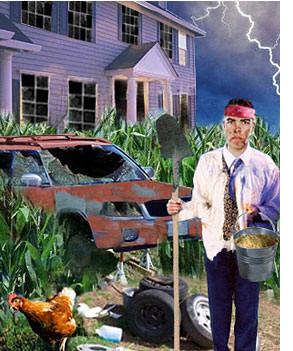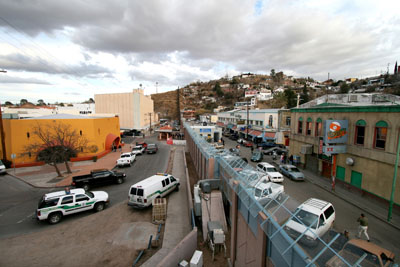But it isn't really funny, for any of the injured parties. (The motorcyclist, the wild pig and the taxpayers of the State of California.)
I have a great deal of sympathy for the motorcyclist who was hurt in the crash. He is in a wheelchair and is unlikely to walk again.
But how the state of California came to be found responsible for the accident is beyond me.

Wild pig, acting pretty tame
It's true, state highway officials were (and are) aware that wild pigs - as well as other creatures like humans, pheasants, rabbits, raccoons, snakes and the occasional coastal deer - sometimes wander across that stretch of state Highway 1.
They still do. (The animals, not the state officials, though they are free to do so...)
But what exactly should state officials do to ensure the safety of people riding motorcycles at night along dark stretches of rural highways? Close highways after dark? Shepherd all wild animals to special animal crossings with guards wearing bright yellow uniforms to hold up traffic?
A few years ago, a good friend of mine had to swerve to miss a deer on a highway in Northern California. In the process of dumping his bike on the road, he racked his ankle sufficiently to put him in a wheelchair for months, then more months on crutches and finally some physical therapy. He also has several metal pins holding his ankle together.
He didn't file a lawsuit against the deer - or the state of California for not issuing enough hunting licenses to keep those dangerous does off the highways. He spent a lot of time recovering, paid his medical bills (with the limited assistance of his insurance company) and rode on, making him luckier than the motorcyclist who hit the wild pig.
Perhaps I need to read the transcripts of the trial to see how the jury came to its conclusion in awarding the $8.6 million in this cyclist vs. pig case.
Might make fascinating - and/or disturbing - reading.












